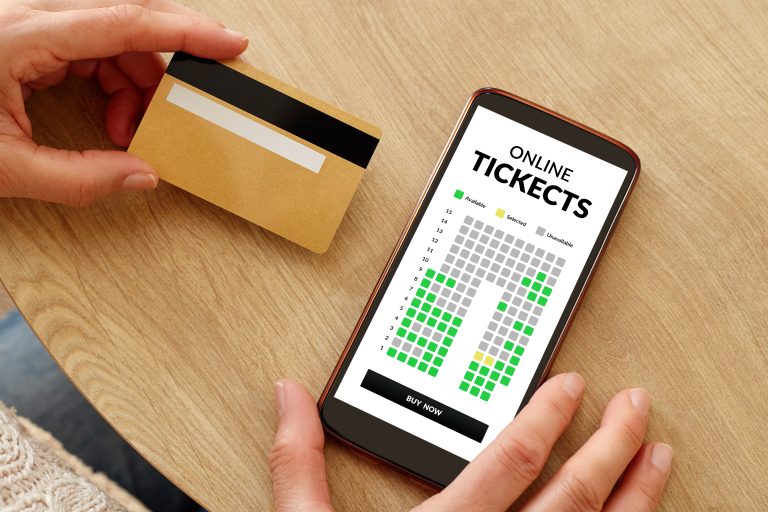How to Safeguard Your Customer Data During Events: A Guide for Event Organizers
Imagine hosting an event where every ticket sold feels like handing over a piece of your guests’ privacy. Scary, right? Protecting customer data during events isn’t just about security—it’s about trust and ownership. As an event organizer, you need solutions that give you control. Discover how white-label ticketing can safeguard your customer data and transform your secure event management. Dive in, and let TicketSocket show you the way to confident, protected events.
Understanding Event Data Security

In the digital age, safeguarding event data is paramount for organizers. Data security involves protecting sensitive information from breaches and unauthorized access. This section delves into why customer data protection is crucial and explores the significant aspects of data ownership.
Importance of Customer Data Protection
Customer data protection is essential for maintaining trust and ensuring compliance with regulations. Events often collect a vast amount of personal information, making them potential targets for cyber-attacks. Ensuring the security of this data is not just a legal obligation but also a responsibility to attendees.
GDPR has set a global standard for data protection, influencing how data is managed and protected. According to Fielddrive, GDPR emphasizes transparency, giving individuals control over their personal data. For event organizers, this means implementing stringent measures to protect attendee information.
An event breach can lead to severe consequences, including legal repercussions and reputational damage. As outlined in Meetings Today, establishing secure data practices can help mitigate risks and assure participants that their data is handled with care.
Key Aspects of Data Ownership
Data ownership provides control over how information is used and shared. For event organizers, owning data means having the autonomy to manage and protect it effectively. This ownership extends to how data is stored, accessed, and utilized post-event.
Owning data allows organizers to tailor experiences and engage attendees meaningfully, but it comes with the responsibility of safeguarding that data. According to Eventtia, clear policies on data usage and sharing are crucial for establishing trust.
Transparent data policies enable attendees to understand how their information is used. By clearly communicating these practices, organizers can enhance trust and ensure compliance. Maintaining data ownership also involves selecting platforms that prioritize security and offer full control over data use.
White-Label Ticketing Solutions
![]()
White-label ticketing solutions provide event organizers with customizable platforms that ensure data security and ownership. This section examines how these solutions benefit organizers and highlights TicketSocket’s approach to secure event management.
Benefits for Event Organizers
White-label solutions offer event organizers control and flexibility over their ticketing processes. These platforms allow for branding and customization, ensuring a seamless experience for attendees while maintaining the security of customer data.
-
Branding Control: Organizers can customize the ticketing platform to reflect their brand, creating a cohesive attendee experience.
-
Data Security: These solutions prioritize security, providing robust features to protect customer information from breaches.
-
Flexibility: Organizers can modify features to meet specific needs, ensuring a tailored approach to event management.
As InEvent notes, the flexibility of white-label solutions supports secure data management, enhancing the overall event experience.
TicketSocket’s Approach to Secure Event Management
TicketSocket focuses on empowering event organizers with advanced data security and customization options. Their platform emphasizes data ownership, giving organizers full control over their customer information.
-
Security Features: TicketSocket integrates cutting-edge security measures to protect data at every stage of the event lifecycle.
-
Customizable Solutions: The platform allows for extensive customization, ensuring that data management aligns with organizational goals.
-
Ownership and Control: TicketSocket prioritizes giving organizers the tools to manage and protect their data, ensuring transparency and trust.
Their approach aligns with best practices in secure event management, as outlined by Eventtia, reinforcing the importance of data protection and ownership.
Best Practices for Data Protection

To safeguard customer data effectively, implementing strong security measures is crucial. This section outlines essential practices for enhancing data security and building customer trust through transparency.
Implementing Strong Security Measures
Strong security measures are vital for protecting sensitive information during events. This involves a multi-layered approach to ensure data is secure from potential threats.
-
Encryption: Use data encryption to protect information both in transit and at rest, minimizing the risk of unauthorized access.
-
Access Controls: Implement stringent access controls to ensure that only authorized individuals can access sensitive data.
-
Regular Audits: Conduct regular security audits to identify vulnerabilities and update security protocols accordingly.
Following guidelines such as those in Meetings Today, organizers can ensure robust security measures that protect attendee data effectively.
Enhancing Customer Trust through Transparency
Building trust with attendees involves transparency about data collection and usage. Open communication can reassure participants that their information is handled responsibly.
-
Clear Policies: Provide clear information on data usage, collection, and protection practices to attendees.
-
Consent Management: Implement tools that allow attendees to manage their data consent, aligning with GDPR requirements as noted by Fielddrive.
-
Communicate Changes: Inform attendees of any changes to data policies promptly to maintain trust.
By adopting these practices, event organizers can foster confidence and ensure compliance, creating a positive experience for all involved.








